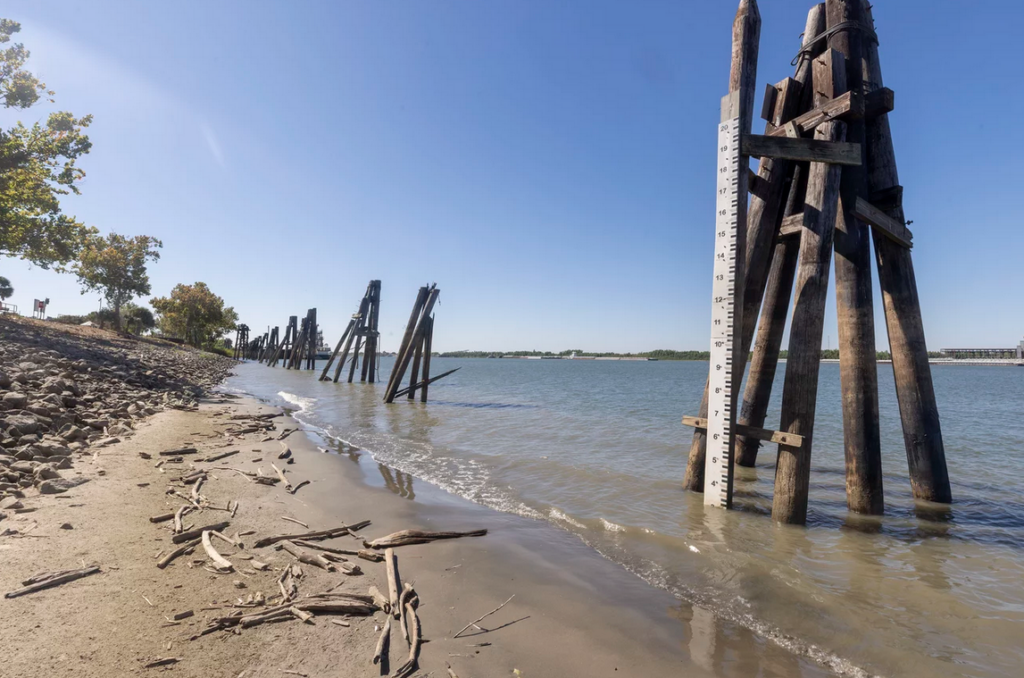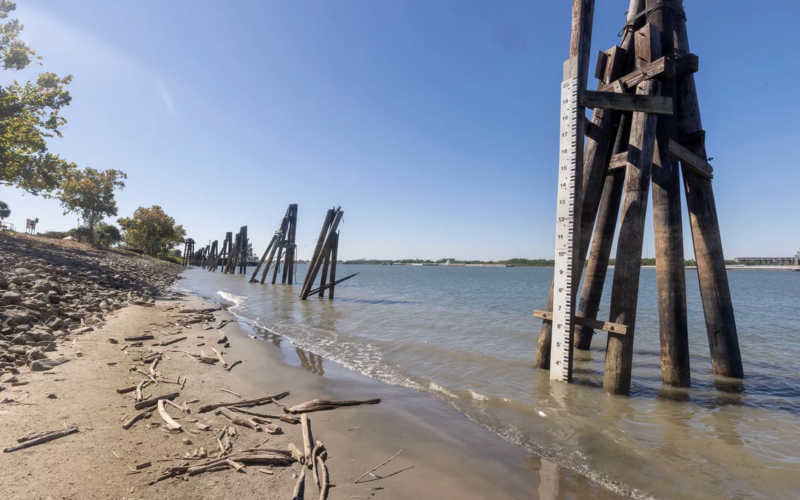(CHICAGO) — A key stretch of the Lower Mississippi River has dropped within inches of its lowest level ever and is expected to remain near historic lows just as the fall U.S. grain export season gets underway, Reuters reported.
Low water has slowed hauling of export-bound corn and soybean barges over recent weeks as shippers lightened loads to prevent vessels from running aground. The water level also has reduced the number of barges towboats can guide in order to navigate a narrower shipping channel.
In a normal year, a 10,000-horsepower towboat on the Lower Mississippi might push as many as 42 barges at once. During low water last year, that same boat could only push about half that number, with each barge loaded with less weight to limit its draft, Jennifer Carpenter, president and CEO of the American Waterways Operators, told USA Today.

The water problem comes at the worst possible time for U.S. farmers as newly harvested corn and soybeans are beginning to flood the market and as competition from Brazil erodes once-dominant U.S. exports.
Portions of the river have been closed 22 times since Sept. 1 for dredging or to remove barges that have run aground, and at least 36 groundings have been reported, the U.S. Coast Guard said.
The Mississippi River dropped to a reading of -10.62 feet on the Memphis, Tenn., gauge on Thursday, just above its all-time low of -10.81 feet on Oct. 21 last year, according to the National Weather Service.
The river is expected to remain below the -10 foot mark into at least mid-October, according to the latest forecast, creating a choke point between heavy production areas in the Midwest and Gulf Coast terminals, where about 60 percent of U.S. grain exports exit the country.
“October’s not normally a robust precipitation month, and if we’re here already … it’s a real cause for concern,” said Mike Steenhoek, executive director of the Soy Transportation Coalition.

